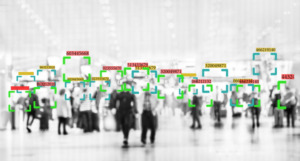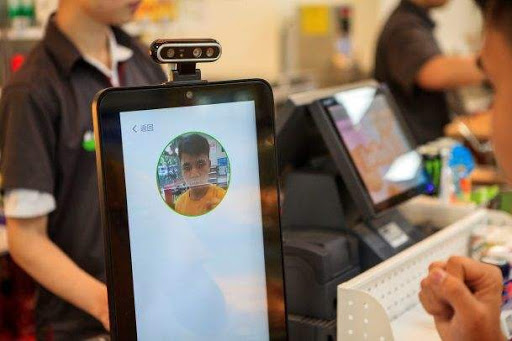Command Palette
Search for a command to run...
Tianjin, Nanjing, Hangzhou and Many Other Places Have Enacted Laws to Strictly Restrict Facial Recognition

Facial recognition has been on the hot search list again recently. The continued fermentation of related incidents has also attracted the attention of local government departments, and relevant legislation has followed.
Recently, the topic of facial recognition has frequently become a hot topic. Faced with the chaos of "face scanning", many places at home and abroad have begun to promote relevant legislation.
As the gaps in laws and regulations related to facial recognition technology are filled, relevant companies and institutions will also use this technology responsibly.
Many places in China have enacted laws to prohibit compulsory facial recognition
On November 21, the first instance verdict of the highly anticipated domestic facial recognition case was released, ordering Hangzhou Wildlife World to delete the plaintiff's photo information and pay 1,038 yuan in compensation;
At the end of November, the news that a man in Jinan wore a helmet when going to view a house in order to protect his personal information also caused heated discussion.
These incidents have once again pushed facial recognition to the center of public opinion and attracted the attention of some local government departments. In just a few days, many places have taken action: Tianjin, Nanjing, and Hangzhou have issued policies to prohibit illegal collection of facial information and mandatory facial recognition.
Tianjin
On December 1, the "Tianjin Social Credit Regulations" was voted and passed and will come into effect on January 1, 2021.
Tianjin Social Credit Regulations
Article 16 of the Regulations stipulates that when market credit information providers collect information about natural persons, they must obtain the consent of the person concerned and agree on the purpose, unless otherwise provided by laws and administrative regulations. Market credit information providers shall not collect a natural person’s religious beliefs, blood type, disease and medical history, biometric information, or other personal information prohibited by laws and administrative regulations.
Based on this, enterprises, institutions, industry associations, chambers of commerce, etc. are prohibited from collecting biometric information such as faces, fingerprints, and voices.
Nanjing
Recently, due to the fermentation of the "wearing helmet to view the house" incident,Relevant departments in Nanjing City require sales offices to dismantle facial recognition systems to protect the rights and interests of home buyers.
At present, many sales offices in Nanjing have received phone calls from relevant departments and have been asked to dismantle their existing facial recognition systems.As far as we know, this is the first case in the country.
The facial recognition system used in sales offices is designed to help real estate companies define their customers, that is, whether the homebuyers are natural customers or intermediary channel customers. When entering the sales office, facial recognition comparison is immediately performed to prevent "flying orders" and duplicate counting of customers' visiting channels.
However, although this practice is convenient for the company, it has not informed the house viewers, and has violated the personal information rights of the house viewers.
Oral notification from relevant departments in Nanjing
The Nanjing Housing Security and Property Bureau issued an urgent notice, requiring real estate sales offices not to take photos of visitors' facial information without their consent, and requiring all sales offices to dismantle existing facial recognition systems.
Hangzhou
On October 28, the Hangzhou Property Management Regulations (Draft Amendment) was submitted to the 13th Hangzhou Municipal People's Congress Standing Committee for deliberation.,Clearly include the requirements for collecting fingerprints, facial and other information into property management regulations.
If the draft amendment is passed,The "Hangzhou Property Management Regulations" will become the first formal legislation in the country to regulate facial recognition in residential communities.
Hangzhou Property Management Regulations (Draft Revision)
Property service providers shall not force owners to use shared facilities and equipment through biometric information methods such as fingerprints and facial recognition, and must guarantee the owners' normal right to use shared facilities and equipment.
Several U.S. cities have banned facial recognition
Similarly, in the past two years, many cities in the United States have gradually followed up with relevant legislation on facial recognition.
Recently, Massachusetts became the first state in the United States to enact a ban on law enforcement agencies using facial recognition systems.
The bill would ban the use of facial recognition on police cameras
Lawmakers in the state's House and Senate have approved a police reform bill that would ban police departments and other public agencies from using facial recognition systems.
In fact, in the past few years, several cities in the United States have passed similar facial recognition bans.
May 2019, San Francisco
The San Francisco Board of Supervisors passed a new ban on the use of facial recognition technology by all units in the city, including the police department and other government departments.
San Francisco has since become the first city in the world to introduce a facial recognition ban.
June 2019, Somerville
The city of Somerville subsequently passed a facial recognition ban, prohibiting police and other government agencies from using facial recognition technology.
In addition to prohibiting municipalities from actively using AI, the ordinance also prohibits the use of data or evidence generated by facial recognition software systems in criminal investigations or legal proceedings.
June 2019, Boston
A bill banning government use of facial recognition technology passed unanimously.
The ordinance, which passed unanimously, blocks the Boston government from using facial recognition technology or obtaining software to use it for surveillance.
July 2019, Oakland, California
The Oakland City Council in California voted unanimously to ban the city's municipal agencies from using facial recognition technology in public places, including the police force.
The ban requires that municipal agencies and any of their employees may not use facial recognition technology, nor may they obtain, retain, request, access or use information collected through facial recognition technology. Anyone who wants to raise funds for surveillance technology such as facial recognition must first obtain approval from the chairman of the Oakland Privacy Advisory Committee.
September 2020, Portland, Oregon
The city passed aThe strictest facial recognition ban in the United States.Not only local government departments are prohibited from using facial recognition technology, but even private businesses including shops, restaurants and hotels are unable to deploy this technology in public places.
November 2020, Portland, Maine
Voted to pass a facial recognition ban, prohibiting law enforcement from using facial recognition and surveillance technology.
Because the facial recognition system is far from perfect, the security risks and bias defects it brings make people distrust it, and these problems may still take a long time to improve.
Please consult before you swipe my face
Being useful does not mean being abused. As the threshold for applying AI technology becomes lower and lower, some incidents of face scanning without contact or notification occur frequently, such as "scanning your face to enter a residential area" and "scanning your face to get toilet paper", which inevitably causes people's privacy concerns.

While any technology brings convenience to people, it should be based on legality and compliance. Although emerging technologies often run ahead of laws and regulations,But fortunately, we are able to use the rule of law to bring the deviated technology back on track in a timely manner when problems are discovered.
Just as facial recognition has been pushed into the spotlight by various cases and its application boundaries are gradually being defined by laws, we will also have sufficient reasons to say "no" to the abuse of facial recognition.
-- over--



